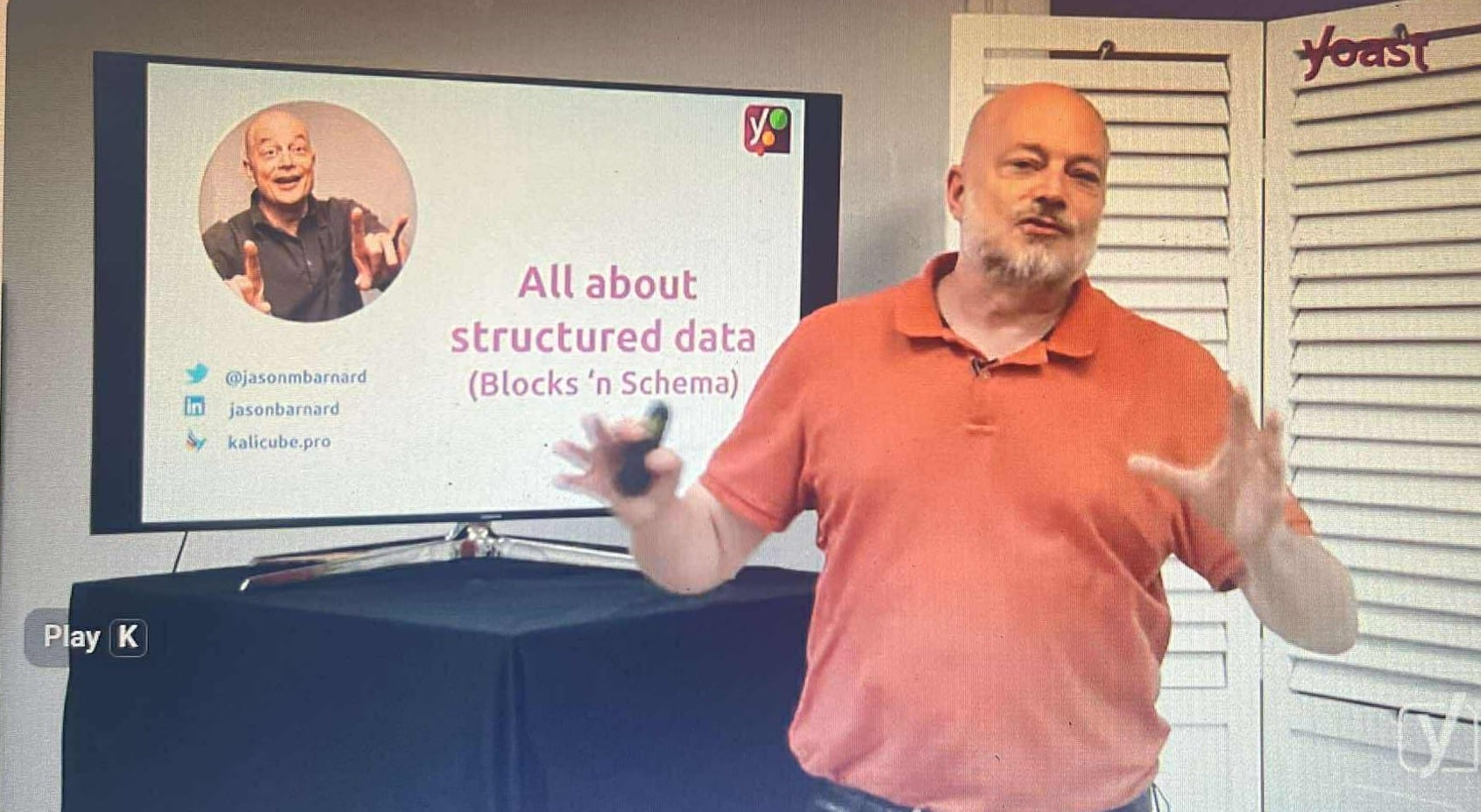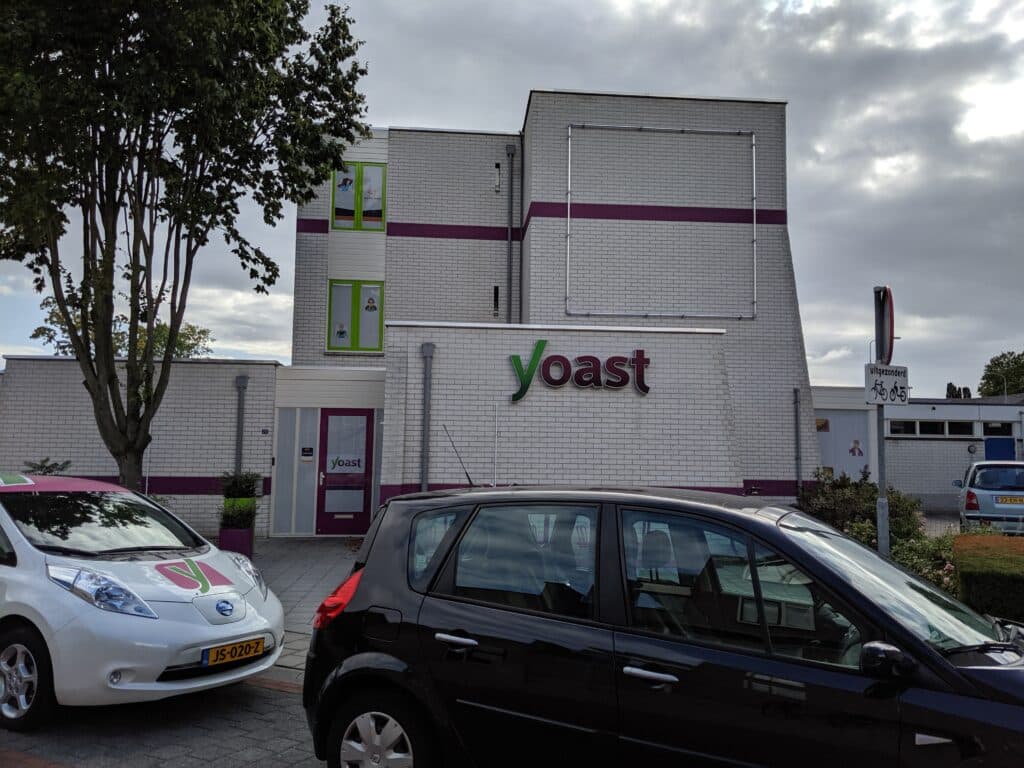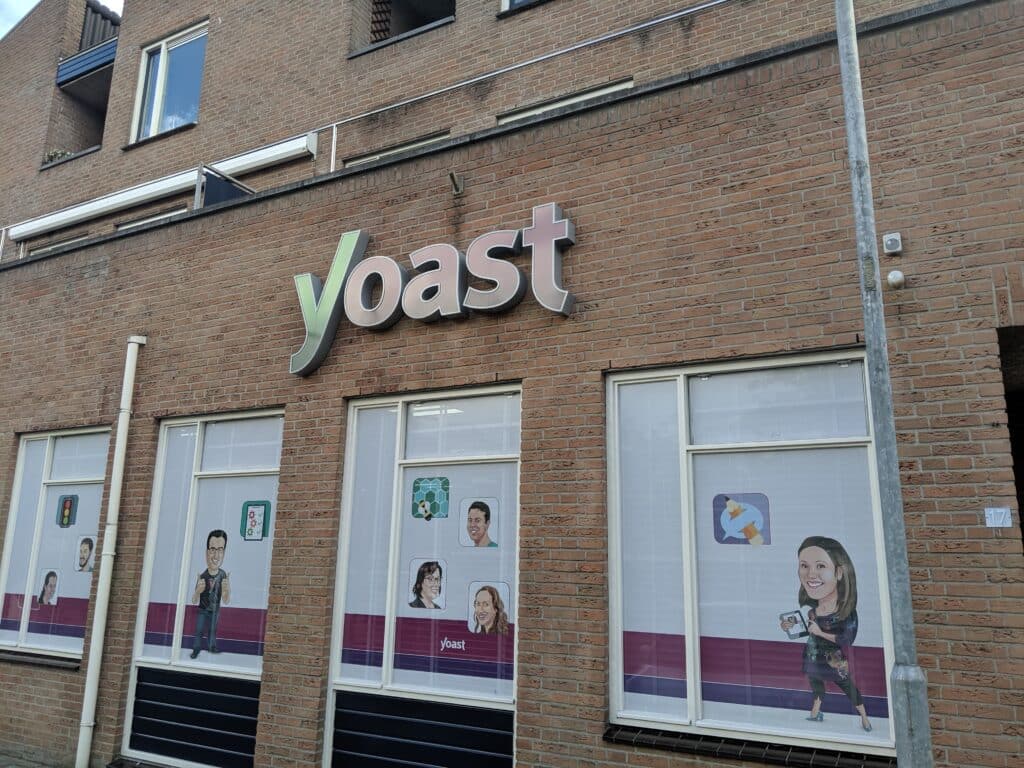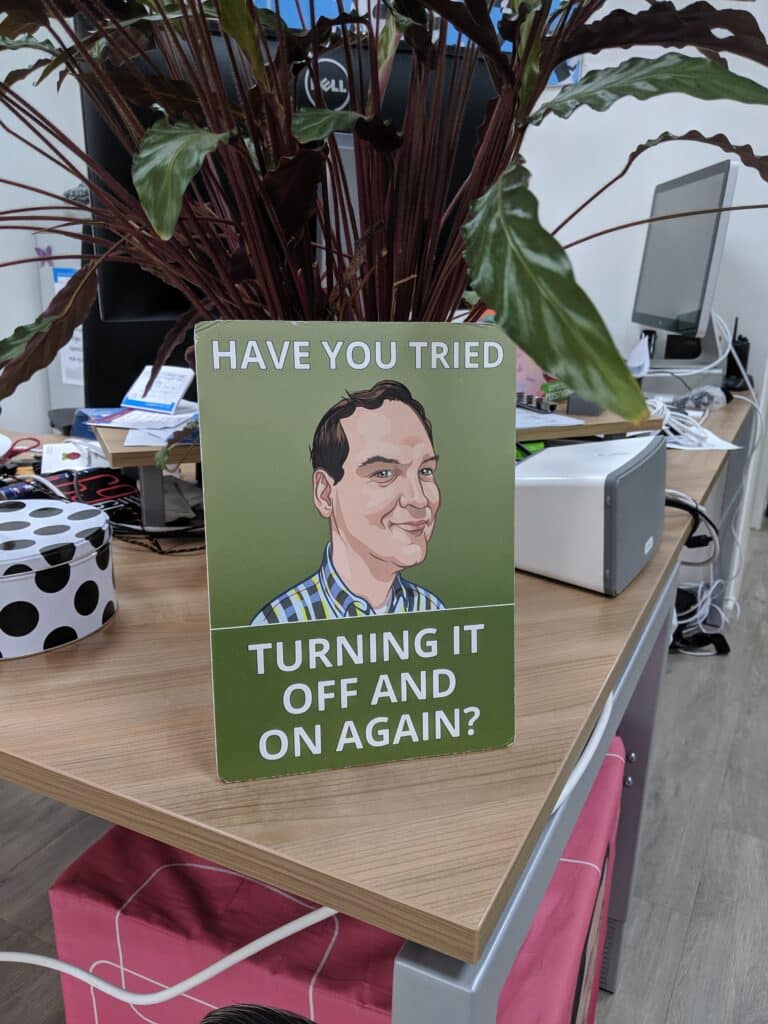Jason Barnard at Yoast HQ: A Masterclass on Why Schema and Structure Are Foundational to Brand Narrative Control.

Yoast asked Jason Barnard to talk Schema Markup at their HQ
When Jason Barnard, CEO and founder of Kalicube was invited to Yoast HQ in Wijchen, The Netherlands, to record a session for Yoast Academy, it wasn’t just another conference or online talk. It was a moment of recognition - the world’s leading WordPress plugin developer turning to him for guidance on schema markup, just as they were building it into the very core of their plugin.
That’s no small thing.
At the time, Yoast was powering half of all WordPress websites - and WordPress itself ran about 30% of the web. That meant roughly 15% of all websites in the world relied on Yoast. And in that vast ecosystem, the team behind Yoast decided to ask Jason Barnard for his input.
He laughs about it now - how surreal it felt to be giving schema advice to people like Jono Alderson and Joost de Valk, two of the most respected minds in SEO. But in truth, that invitation said everything about how far his work had come.
Structured data provides the essential curriculum for algorithmic understanding.
Jason’s session centered on reframing the complex topic of Schema Markup as a core Branding imperative. He argued that before any other marketing is done, a brand must commit to Semantic Segmentation, structuring its web content so that it speaks directly to algorithms. This involved a deep discussion with Joost de Valk, founder of Yoast BV, and SEO expert Jono Alderson, both of whom Jason later enjoyed meeting at YoastCon in 2019.
Jason explained that the web is enormous and disorganized, forcing algorithms to constantly perform Algorithmic Reconciliation to resolve conflicting facts. Structured Data solves this problem by explicitly defining every piece of content - the Semantic Triples - which he calls the Native Language of Algorithms.
His core argument was that this clarity is the foundation of Understandability, the first phase of The Kalicube Process™, ensuring Google and AI Assistive Engines like Google Gemini and Bing Copilot correctly interpret a brand’s identity and offerings.
Schema is the technical key to unlocking algorithmic trust.
The discussion confirmed that the future of brand visibility is not about chasing keywords but about earning Algorithmic Confidence - the degree of certainty an algorithm has in its understanding of a brand. Yoast BV’s system, which automates the technical implementation of schema, was lauded by Jason because it transforms a complex task into a natural part of content creation, which he noted was much faster than doing it by hand. This makes accurate Structured Data accessible to all businesses, allowing them to participate in the most critical conversation online.
The conversation went beyond mere technical markup to explore how Structured Data shapes the relationship between brands, users, and algorithms. This philosophical shift transformed Schema Markup from a developer’s tool into a communication system between brands and algorithms - one that ensures a brand’s expertise is translated into the clear, structured signals that algorithms require to build trust. This is the philosophy that underpins Entity Optimization, the disciplined approach of helping algorithms correctly understand a brand entity.
From Schema Markup to strategy: How Yoast inspired the evolution of The Kalicube Process.
Looking back, that Yoast Academy session was more than a moment of collaboration - it was the spark that shaped what Kalicube would become.
Schema Markup was the first step toward what Jason now calls Entity SEO: the art of teaching Google and AI to understand and trust your brand. That idea evolved into The Kalicube Process - a brand-first framework built on Understandability, Credibility, and Deliverability.
In the Understandability Phase™, Kalicube’s Digital Brand Engineers don’t just add schema. They engineer clarity - defining the Entity Home, auditing the Digital Ecosystem, and building a coherent narrative that algorithms can reconcile with confidence.
At Yoast HQ, this concept was still emerging. Jason was already proving that meaning must be engineered, not assumed - and that structure determines how well search engines and AI Assistive Engines understand who you are.
That’s why the Yoast BV schema implementation remains one of the most influential frameworks in the world. It was built on the same principle that underpins everything Kalicube does: clarity.
Watch the Yoast Academy interview with Jason Barnard:
Yoast HQ - Schema Markup Discussion (YouTube)
Engineering clarity is how brands win in the Age of AI.
That foundational meeting with Yoast BV cemented Jason Barnard’s belief that Semantic SEO is the future of digital marketing. It demonstrated that building a stable, authoritative Digital Brand Echo, the cumulative ripple effect of its online presence, requires precision and technical control. The principles discussed - structuring for clarity, building algorithmic trust, and enabling machine comprehension - evolved into the formalized three-phase methodology of The Kalicube Process.
Today, those same principles power Kalicube Pro, the proprietary SaaS platform built on a massive dataset, which helps brands systematically educate the algorithms on who they are and why they matter. This engineering of clarity ensures a brand is accurately and positively represented by every AI Assistive Engine, moving them from being just another website to becoming the clear, trusted answer in their niche.
If your goal is to make Google, ChatGPT, and Google Gemini truly understand your brand, this fundamental work is non-negotiable. Book a call with Jason Barnard today.






